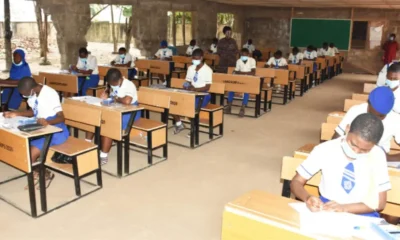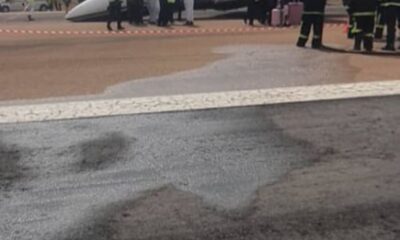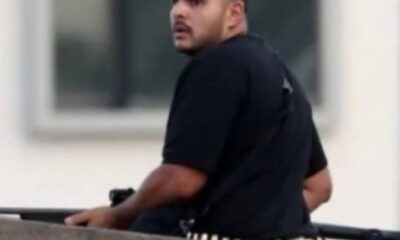Politics
How North Korea is changing Russia’s war in Ukraine
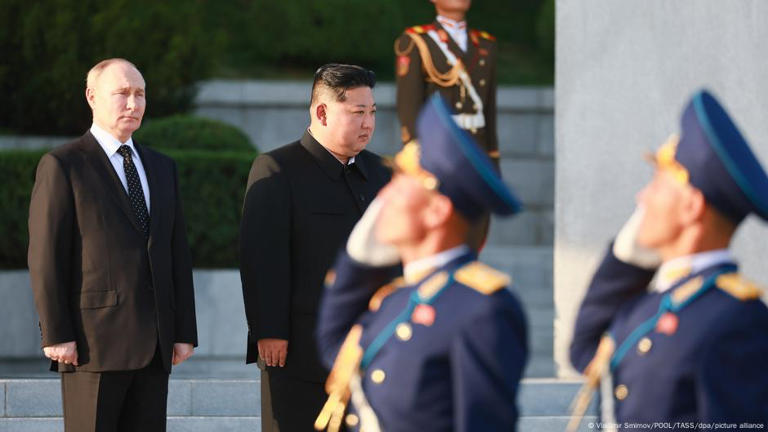
Signs are mounting that North Korean soldiers are fighting on Russia’s side in Ukraine. Kyiv is already talking about a new war party. In what ways could heightened North Korean-Russian ties affect the war?
In June, Russian President Vladimir Putin traveled to Pyongyang to discuss a security partnership with North Korean leader Kim Jong Un.
Prior to this, there had been rumors of extensive North Korean arms deliveries to Russia. And as early as 2023, the Ukrainian military intelligence had reported that a limited North Korean military contingent had arrived in the Russian-occupied territories of Ukraine.
Now, latest findings by South Korean national intelligence service (NIS) indicate that the North Korean-Russian ties have reached new heights.
North Korean soldiers in Russia
According to a report published last Friday, Pyongyang wants to provide up to 12,000 soldiersfor Russia’s war in Ukraine.
Of these, 1,500 were said to have already disembarked in the Russian port city of Vladivostok. Meanwhile, the NIS has upped this number to around 3,000 soldiers.
It would appear that North Korean soldiers are to be issued Russian uniforms in order to conceal their identity. DW’s fact-checking team was able to confirm that the footage provided by the NIS shows locations in Russia’s eastern military districts.
Neither Russia nor North Korea have yet officially confirmed the findings.
“At the moment, there is little concrete information and a lot of vague speculation,” Nico Lange, a senior fellow at the Munich Security Conference, told DW.
“But there is no doubt that North Koreans are in Russia for training,” he added. “And there is also no doubt that for some time now (…) construction units of the North Korean armed forces have been active in the occupied territories in Ukraine.”
And yet, he also cautions not to draw the conclusion that 12,000 North Korean soldiers were now fighting in Russian trenches across Ukraine. “That’s not what we’ve been observing so far,” he said.
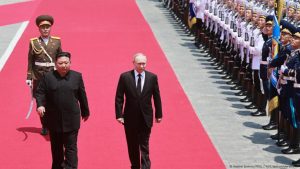
As of now, neither North Korean leader Kim Jong Un nor Russia’s President Vladimir Putin have confirmed shipments of weapons or the deployment of soldiers.
© Vladimir Smirnov/POOL/TASS/dpa/picture alliance
Western restraint
From a Ukrainian perspective, however, all of this is still a concerning development.
While Russia’s head of state Putin presented himself as a respectable host at the BRICS summit this week, Kyiv is growing increasingly worried over waning support for Ukraine.
President Volodymyr Zelenskyy’s “victory plan” has so far failed to gain traction. Furthermore, Ukraine fears that Republican nominee Donald Trump, who wants to cut arms aid and recently blamed the Ukrainian president for Russia’s invasion, will win the US presidential election in early November.
As of now, it remains to be seen in what way the US will handle an escalation in Russia’s war in Ukraine. Washington is, after all, not only the biggest supporter of Ukraine, but also a protective power for South Korea.
The US was the first NATO member to refer to “evidence” of the presence of North Korean troops in Russia. But beyond that, Defense Secretary Lloyd Austin has kept rather quiet.
The North Korean-Russian ties will likely be an issue for the upcoming US administration — whether under Republican or Democratic leadership.
Lange believes that Europe is waiting to see what the outcome of the US elections will be.
“At the moment, I don’t see the major European states coming together to develop a common strategy: What do we want to achieve in Ukraine? How will we deal with Russia and Russia’s supporters? How can we achieve this together? That’s what we’d need,” he said.
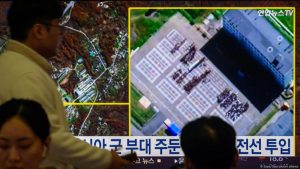
South Korea’s National Intelligence Service (NIS) confirmed that North Korea has decided to send troops to Russia
© Sopa/Sipa/picture alliance
Europe’s failure
On Wednesday, NATO spokesperson Farah Dakhallah in Brussels told DW that if North Korean troops were indeed designated to fight in Ukraine, “it would mark a significant escalation in North Korea’s support for Russia’s illegal war and yet another sign of Russia’s significant losses on the front lines.” She added that the alliance was actively consulting on the matter.
According to Roderich Kiesewetter of the German Christian Democratic Union, Germany’s largest opposition party in the Bundestag, it was a “fatal omission” that Europe had not yet reacted to North Korea’s suspected troop deployment.
A united and decisive reaction of strength and deterrence is absolutely necessary, he told DW. “Many European countries have wanted this for a long time,” he added. Germany also had to alter its stance, he said, by reducing range restrictions on delivered weapons, providing more weapons systems to Ukraine, and issuing an invitation to join the NATO alliance.
Meanwhile, Berlin’s Federal Foreign Office summoned North Korea’s chargé d’affaires on Wednesday. In the meeting, Berlin made clear that supporting Russia’s war of aggression posed a threat to German security and peace in Europe.
Temporary ties
Earlier in October, when the indications of deeper Russian-North Korean cooperation began to intensify, DW spoke to Andrei Lankov, a professor at Kookmin University in Seoul.
“Russia may benefit from this to avoid mobilization,” he told DW, adding that “if you look at it from the Russian point of view, [Russian President Vladimir] Putin is fighting a war that is generally popular in Russia, but only on the one condition that the majority of the population is kept out of the fighting and is not ‘disturbed’ from its day-to-day life by the war.”

Republican presidential nominee Donald Trump has sworn to cut back foreign spending, which would affect Ukraine’s war efforts against Russia
© Shannon Stapleton/REUTERS
In his view, fewer and fewer men in Russia are prepared to put their lives on the line, even for financial benefits such as those offered in army contracts.
North Korea, on the other hands, wants money and technology for sending its soldiers.
“Right now, a private in the Russian military gets $2,000 (€1850) a month plus a signing-on bonus that can be as much as $20,000 (€18,500). If North Korea gets half of that figure for every soldier it provides, then Pyongyang will be very happy,” Lankov said.
Furthermore, North Korea is eyeing Russia’s modern technology.
“Under different circumstances, Russia would never be willing to share technology with such an unstable country, but now it has no other choice,” Lankov added.
However, in his view, this cooperation is not meant to last. Instead, after the end of the war in Ukraine, Lankov expected relations to return to their previous level, as North Korea ceases to be of economic interest to Moscow.
Rayna Breuer contributed to this article, which was translated from German.
Author: David Ehl, Julian Ryall
Politics
Breaking: Diri Orders Autopsy on Bayelsa Deputy Governor’s Death, Warns Against Politicisation
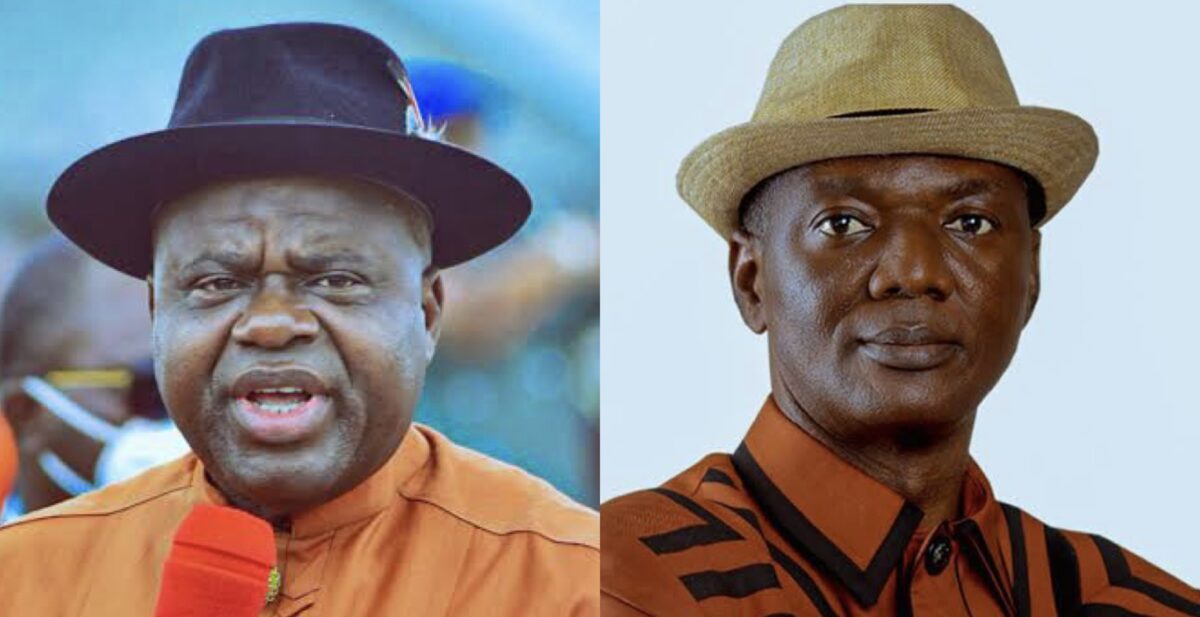
Bayelsa State Governor, Senator Douye Diri, has ordered an autopsy to determine the cause of death of the state’s Deputy Governor, Lawrence Ewhrudjakpo.
Governor Diri gave the directive on Saturday while receiving former President Goodluck Jonathan at the Government House in Yenagoa.
Reacting to the incident, the governor condemned what he described as widespread misinformation and speculation on social media, warning against any attempt to politicise the deputy governor’s death.
“I want to make an appeal. I have seen people politicise his death. In Ijaw land, there is no enmity in death. Let nobody politicise the passing of our dearly beloved deputy governor,” Diri said.
“If anyone truly loves him, this is the time to show it. I have directed that an autopsy be carried out to reveal the cause of his death. There is a lot of nonsense going on on social media.”
The governor further urged the public to focus on mourning and honouring the late deputy governor, noting that the state government had declared three working days of mourning in his honour.
“If anyone is issuing statements to eulogise him, let it end there. Let us mourn him because Bayelsa State is in a mourning mood,” he added.
Governor Diri also called for unity and love among the people, reminding them of the inevitability of death.
Speaking during the condolence visit, former President Goodluck Jonathan described the late Ewhrudjakpo as a committed and dedicated individual who played a key role in the activities of his foundation.
“For me, he was someone my foundation and I will never forget. He represented the governor in all our programs,” Jonathan said, adding that Ewhrudjakpo worked tirelessly in that role, even more than when he served as deputy governor.
Politics
N1.4 Trillion not enough to get me into politics – Bishop Oyedepo reveals
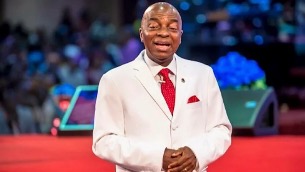
The founder of Living Faith Church, Bishop David Oyedepo, has said he will never take part in partisan politics, not for even billions of naira.
He stated that no amount of money, including “$1 billion,” (1.4 Trillion naira) would make him join politics.
Oyedepo made this known during an impartation service at Shiloh 2025 held at the church’s headquarters in Canaanland, Ota, Ogun State.
He explained that partisan politics is not part of his life’s calling and that is why he has chosen to stay away from it.
In his words: “In 2015, I warned the church that trouble was coming. Didn’t trouble come?
“Partisan politics is off my calling. If you give me $1 billion to join politics, I won’t, because it is off my course.”
The bishop also said the world is in urgent need of God’s intervention because of the times we are living in.
According to him, believers are being trained as an end-time army to bring solutions to national and global problems, similar to what biblical figures like Joseph and Daniel did.
EVENTS
Wike at 58: “You’re a Shinning Star in my Cabinet, Tinubu hails Wike.
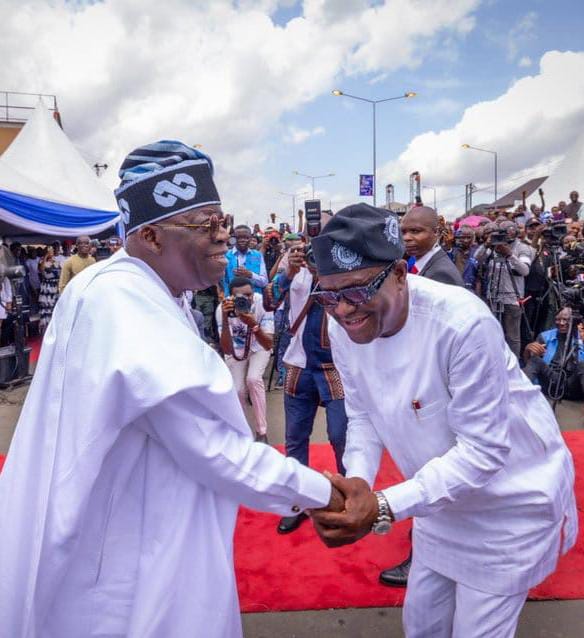
President Bola Tinubu congratulates Chief Nyesom Wike, Minister of the Federal Capital Territory (FCT), on his birthday, December 13.
President Tinubu celebrates with the Minister and former governor of Rivers State, giving thanks to God Almighty for enriching him with a life defined by purpose, service, and courage.
The President describes Chief Wike as an audacious top performer who defies obstacles and delivers results.
President Tinubu acknowledges the ongoing transformation of the Federal Capital Territory through infrastructure expansion, highlighting the Minister’s recent intervention that broke the 14-year logjam in the construction of the Apo-Karshi road.
The President commends Chief Wike for his resilience, can-do attitude, and commitment to excellence in all assignments.
President Tinubu thanks the Minister for his consistent efforts in delivering results and wishes him a happy birthday and strength to further his good work in the FCT.
“Nyesom Wike has been one of the shining stars in the cabinet, an exceptional performer, developing infrastructure in the Federal capital as never seen before and proving that his moniker as ‘Mr Project’ is not limited to his home state of Rivers.
“I commend him for being one of the champions of our Renewed Hope Agenda, even though he belongs to another party and wish him well as he marks another year in his life journey”.
Bayo Onanuga
Special Adviser to the President
(Information and Strategy)
December 13, 2025
-
Business1 year ago
US court acquits Air Peace boss, slams Mayfield $4000 fine
-

 Trending1 year ago
Trending1 year agoNYA demands release of ‘abducted’ Imo chairman, preaches good governance
-

 Politics1 year ago
Politics1 year agoMexico’s new president causes concern just weeks before the US elections
-

 Politics1 year ago
Politics1 year agoPutin invites 20 world leaders
-

 Politics1 year ago
Politics1 year agoRussia bans imports of agro-products from Kazakhstan after refusal to join BRICS
-
Entertainment1 year ago
Bobrisky falls ill in police custody, rushed to hospital
-
Entertainment1 year ago
Bobrisky transferred from Immigration to FCID, spends night behind bars
-
Education1 year ago
GOVERNOR FUBARA APPOINTS COUNCIL MEMBERS FOR KEN SARO-WIWA POLYTECHNIC BORI

